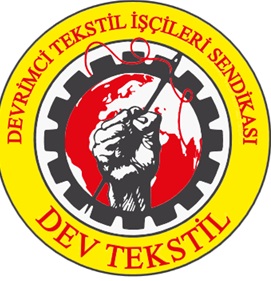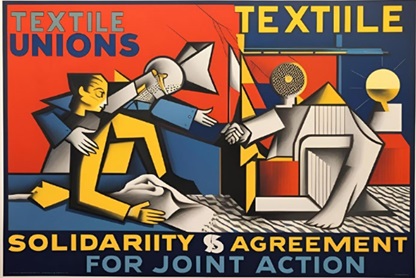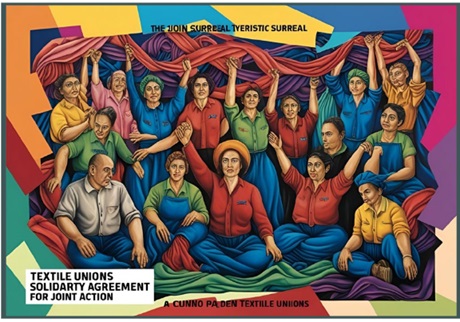SELİN PİR
Private Sector Teachers‘ Union
On 9 February 2025, Private Sector Teachers‘ Unions from different
countries came together in an online conference to make presentations
about the privatisation of education in their countries and its
consequences. We present these presentations for your attention.
Dear colleagues, honored guests, and fellow educators,
It is an honor to be here today to discuss an issue that deeply affects educators in the private sector. My name is Selin, and I represent the Private Sector Teachers‘ Union of Turkey. We would like to thank Mr Korkmaz and Politeknik International Magazine for this opportunity to share our perspective on the challenges and realities we face.
It is an honor to be here today to represent the Private Sector Teachers‘ U ion of Turkey, a young but determined organization committed to advocate for educators in the private sector. We have recently held our second regular general assembly, marking another step forward in our mission. Today, I would like to share the realities faced by private sector teachers in Turkey.
To begin, I would like to explain why private sector teachers in Turkey needed a union. The acceleration of education privatization and the increasing number of private schools in Turkey accelerated with legal regulations and policies implemented by the ruling (AKP), Justice and Development Party, which came to power in 2002. While private schools, courses, and rehabilitation centers had existed before, recent government regulations have aimed to reduce the financial burden on public resources by shifting more of the education sector to private funding. This shift has significantly impacted teachers‘ working conditions and job security, making unionization a necessity.
In a few moments, I will discuss the legal and practical obstacles we face in unionization and collective bargaining. But first, I would like to provide firsthand insight into the working conditions and job security challenges that private sector teachers experience.
Until 2014, a law ensured salary equalization between private and public school teachers. However, to reduce labor costs for private school investors and promote private funding, this law was abolished in 2014. At the same time, the government launched a campaign to support families by providing financial incentives for those who enrolled their children in private schools. Additionally, the
government reduced the number of teachers hired in public schools, leading to a rise in unemployment among educators. As a result, many teachers were forced to seek jobs in the private sector under unfavorable conditions.
Government policies that push teachers to accept these conditions should not be ignored. To be hired in public schools, teachers must pass a national exam (KPSS) that tests their knowledge in various subjects, in- cluding Turkish language acquisition, Geography, Math, History, Teaching theories, and their specific field of expertise. Additionally, teachers must undergo a deceptive interview process, which further complicates their chances of securing a public sector position. According to the latest regulations, after passing all these steps, teachers must enroll in an academy to be established by the Ministry of Education, where they will receive training in pedagogical proficiency.
Government policies not only push teachers into the private sector, but they also regulate their working conditions. Since all schools, courses, and rehabilitation centers—whether private or public—are under the rule and regulation of Ministry of Educa- tion, teachers are subject to the same laws governing discipline and inspection. Teachers are required to sign one-year, short-term contracts with
the institutions they work for, in accordance with the Private Education Institutions Law 5580. However, this law does not protect teachers‘ rights. Instead, it mainly protects investors by allowing them to avoid paying sev- erance to teachers who have worked for the same school for years.
Overall, I’ve outlined the reasons behind the challenges faced by private school teachers in Turkey. As the Private Sector Teachers‘ Union of Turkey, we do not only advocate for the rights of private school teachers. We also represent educators in private courses, rehabilitation centers, and universities. In the field of private courses, teachers face some of the worst exploitation. In these institutions, teachers are often forced to resign before the end of their short-term contracts to avoid being paid during the summer term. According to the Private Education Institutions Law 5580, teachers are entitled to additional pay for every weekly lesson over 20 hours, and cannot be required to teach more than 40 hours. However, in private courses, teachers are often forced to work over 45 hours a week, sometimes even more, without receiving any additional compensation.
In private rehabilitation centers, which serve children with special needs and are funded by the government, teachers are paid based on the number of lessons they provide. If parents request additional lessons, they can pay extra. However, the biggest issue in these institutions is that teachers are often paid minimum wage. Additionally, they face irregular working hours. If students miss classes, teachers are required to make up for those hours, and in some cases, they are even forced to work on their days off.
In private universities, educators work under the regulations of the Council of Higher Education. There is a law ensuring payment equality between private and public universities. However, since the enforcement and inspection of this law are not as effective as it appears on paper educators still face significant exploitation.
As the Private Sector Teachers‘ Union of Turkey, we have over 11,000 members working across the various fields of the private education sector I’ve mentioned. However, legal regulations not only affect the working conditions and economic stability of educators, but they also limit our rights to unionize. As private sector educators, we can only unionize under a work branch category known as ‚trade, office, education, and fine arts,‘ which encompasses a larger number of workers than any other sector in Turkey. This category includes over 4 million workers in a wide range of different fields, making it an obstacle for us to engage in collective bargaining.
To address this issue, we have been holding meetings with the International Labour Organization (ILO). Our goal is to raise awareness about the challenges educators face in Turkey and to get the ILO involved in advocating with the Ministry of Education and the Ministry of Labor.
To overcome the legal obstacles we face, as the Private Sector Teachers‘ Union of Turkey, we also engage in militant activism, raising public awareness and helping people understand the challenges educators are facing.
By organizing various actions in front of the Ministry of National Education and in the park next to the Grand National Assembly of Turkey (TBMM), we brought issues such as base salaries, education-related matters, and indefinite-term contracts to the national agenda. Throughout this process, we continued our discussions with the Ministry of National Education. During the summer of 2024, while the new teaching profession law was being discussed in the parliament, we held a 52-day educational watch in the park next to the TBMM, advocating for the legalization of our right to a base salary.
During that time, teachers‘ unions from around the world expressed their solidarity with us. We would like to once again thank all the education unions for their support. Our struggle and fight will continue to grow stronger. On behalf of the Private Sector Teachers‘ Union of Turkey, I would like to greet you all with respect once again.
Thank you!











